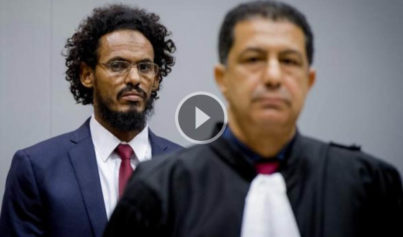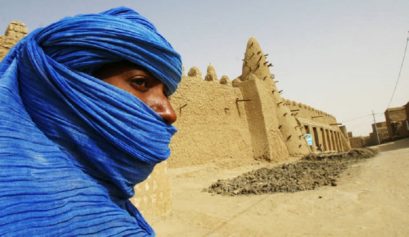Under international pressure to try to stabilize the north African country of Mali and stop Al-Qaeda connected terrorist groups from spreading to other countries and into nearby Europe, the UN Security Council approved plans for European nations to train a force of West African troops to secure the region—though analysts aren’t hopeful that such an effort has any chance of succeeding.
U.S. Ambassador to the U.N. Susan Rice also wasn’t very hopeful, dismissing the plans as useless, though the U.S. voted for the measure anyway.
The force would likely consist of about 3,300 soldiers from West Africa and the training probably wouldn’t be complete until September of next year.
“The prospects are not brilliant,” a former intelligence chief, who asked to remain anonymous, told Al-Jazeera.
The fighters will attack “when we’re not expecting it, in small groups that strike and quickly withdraw. That’s the basics of guerrilla warfare.”
The soldiers would come mainly from Nigeria, Niger and Burkina Faso, although Ivory Coast President Alassane Outtara told reporters in Nigeria’s capital Abuja last month that other West African countries and two or three non-African states may also contribute forces.
When the UN Assistant Secretary-General for Human Rights Ivan Simonovic returned from Mali in October, he reported to the world community that Islamist militias had imposed a harsh version of Sharia law on the areas they controlled, drastically affecting the lives of women in particular. Mali residents in the north told him of forced marriages, forced prostitution, widespread rape, and women being sold as “wives” for less than $1,000.
The internal crisis in the West Africa nation of Mali grew more chaotic last week when soldiers “arrested” the prime minister, Cheikh Modibo Diarra, and forced him to go on television at 4 a.m. and announce his resignation to the nation.
A spokesman for the military junta said Diarra, an astrophysicist who previously led one of NASA’s Mars exploration programs, was forced to resign because he “doesn’t get along” with the army captain who led a coup in March. Diarra was taken from his home, forced into a car and driven to the Kati military camp, the base from which the March 21 coup was launched.
“Our country is living through a period of crisis. Men and women who are worried about the future of our nation are hoping for peace,” Diarra said on television, his forehead glistening with sweat. “It’s for this reason that I, Cheikh Modibo Diarra, am resigning along with my entire government on this day, Tuesday, Dec. 11, 2012. I apologize before the entire population of Mali.”
Northern Mali is currently under the control of Muslim extremist groups and terrorist groups such as the North African arm of al-Qaeda, Al-Qaeda in the Islamic Maghreb (AQIM), the same group blamed for the attack on the U.S. consulate in Libya that killed Ambassador Chris Stevens.
The head of AQIM, Abou Moussab Abdel Wadoud, is not backing down, warning France and West African nations that they will pay a price if Europe intervenes.
“If you [France and its supporters in Africa] want a war, the Sahara will become a huge graveyard for you and your interests,” Abou said, in a video posted on pro-Islamist websites earlier this month.
“The creation of a haven for terrorism in northern Mali, and the links that could be established [there] between terrorist groups and illegal trafficking carry huge risks,” wrote German foreign minister Guido Westerwelle and his French counterpart, Laurent Fabius, on their websites.
But analysts believe that West African and Malian soldiers are far from ready for desert combat against the jihadists. And bringing together a multinational force that will also be accepted into Mali by its military — which led the coup — could be difficult.
“It is likely that [the MNLA and MUJWA] will avoid direct confrontation, in which case [the intervention force] would have no chance,” a senior French officer told the AFP news agency on condition of anonymity. “If the force sent to deal with them is credible, [the MNLA and MUJWA] will certainly leave the towns and head for their sanctuaries in the mountain ranges close to the Algerian border… and that will become a different ball game to dislodge them.”
The former intelligence officer was even more blunt.
“If we really want to eradicate the problem, we would have to use African and Western forces and lock down the borders—you realize what a job that would be—and sweep the whole terrain,” he said. “It’s not 3,000 men that are needed, it’s 100 times as many, and for a long time. We are far from what’s required. Take Afghanistan as a reference and you’ll understand.”


